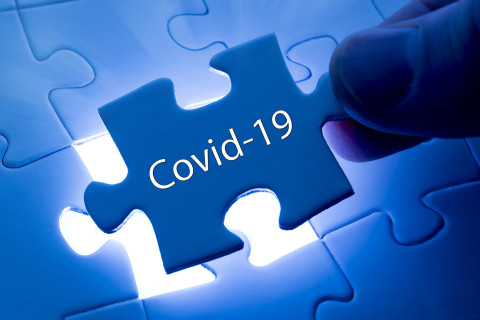Researchers at the University of Eastern Finland have launched, already at the early stage of the pandemic, various projects to analyse and explore the exceptional situation from different perspectives.
Academy Professor Seppo Ylä-Herttuala at is working together with scientists from the University of Helsinki to develop a COVID-19 vaccine that will make use of gene transfer technology that has been developed in Kuopio. The vaccine, developed in collaboration with Professor Kalle Saksela and Academy Professor Kari Alitalo, will be administered as a nasal spray.
According to Ylä-Herttuala, the development of the vaccine is made easier by the fact that there is an abundance of just one protein on the surface of the COVID-19 virus, and this is the protein against which antibodies are formed. For the vaccine, only the protein and not the virus itself, are needed. Many other vaccines use the disease-causing virus either in a weakened or in a modified form.
“Similar vaccines that are based on gene transfer have also been developed against the SARS and MERS viruses, and with promising results.”
Mental well-being hasn’t been forgotten, either. This April, University Lecturer in Applied Studies in Theology Suvi-Maria Saarelainen and her colleagues in Italy, Spain and Poland launched a study into how the COVID-19 pandemic affects people. The study focuses on mental, spiritual and religious coping.
Another international study addressing these exceptional times has also been launched at the School of Theology. Associate Professor of Practical Theology Pekka Metso and Postdoctoral Researcher Talvikki Ahonen study the activities of churches and other religious communities during the COVID-19 crisis. The project also examines theological and religious perspectives to the pandemic and the state of emergency.
University Lecturer of Church History Sini Mikkola and Early-Stage Researcher Laura Kallatsa launched, around this Easter, a study into how the state of emergency affects religious life and religious services in the Evangelical-Lutheran Church of Finland. Mikkola’s study also addresses issues relating to Holy Communions organised online.
Professor of Swedish Jaana Kolu is starting a study in the field of linguistics into how the older population gets written about in the context of the COVID-19 crisis. Currently, it seems that older people are often referred to in the passive voice instead of being seen as people with active agency. In Sweden, the discourse around the coronavirus has been highlighted as an example of ageism.
Professor of Environmental Informatics and Modelling Mikko Kolehmainen is involved in a national research group that has published a simulation model REINA and written a scientific article based on the simulation results. The simulation model can be used to investigate how imposing and lifting different restrictions, as well as testing and tracking people, affect the coronavirus pandemic. The results presented in the manuscript show that suppression strategy is more applicable than mitigation of the pandemic.
In the field of business studies, University Lecturer Jonna Koponen and Associate Professor Saara Julkunen have just launched a study into customer experiences in Finnish retail trade during the state of emergency.
In addition, University Researcher, Docent Kaisa Henttonen from the Business School is involved in the Fast Teams network, which brings together researchers from multiple research organisations. The network explores ways for Finland to maintain its capability to function also during the COVID-19 pandemic.


